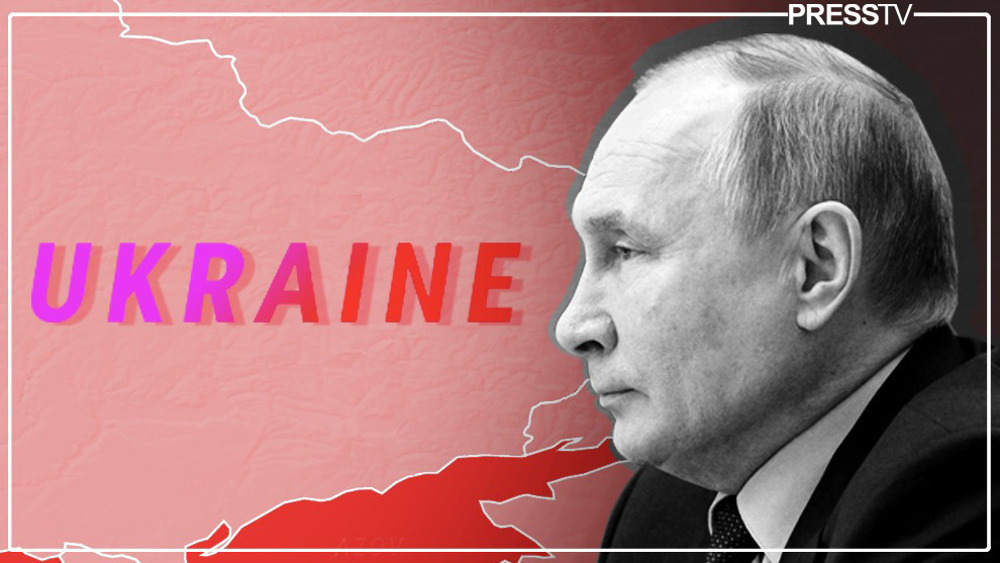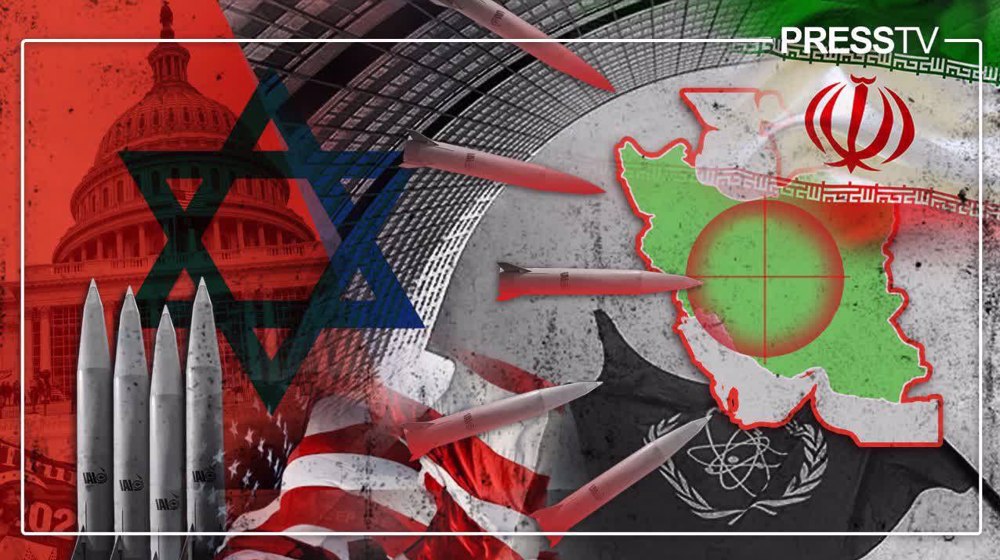Ukraine crisis is rooted in broken US promise to avoid eastward expansion
By John Wight
John Wight is an author and political commentator based in Scotland.
At the time of writing, Russia has amassed over 100,000 troops within striking distance of Ukraine with many, up to and including US President Joe Biden, predicting that an incursion into or invasion of Ukraine by Russian forces is imminent.
Vicious enmity and Putin’s warning
If there is an invasion, it will be brutal and bloody, reflective of the vicious enmity that exists in Ukraine between a monist ultra-nationalist and sectarian identity - involving deep-rooted anti-Russian sentiment which has a historical basis - and a non-sectarian pluralist identity in line with Ukraine’s multiethnic and multicultural character and which embraces Russia as a de facto mother country. These antagonistic identities came into conflict in 2014 with the so-called Maidan Revolution, which forced Ukraine’s then president, Viktor Yanukovich, from office after he decided to rescind an earlier decision to enter Ukraine into the EU’s European Association Agreement, a stepping stone towards full EU membership, which in turn would pave the way for NATO membership.
In the aftermath, pro-Russian and Russian-backed Ukrainians centered in Donbas in the east of the country, close to Russia’s western border, rose up in armed resistance, while Crimea, with its majority of ethnic Russian population, seceded from Ukraine and joined the Russian Federation. Taken all together, it amounts to the failure of Washington and Brussels to achieve further geostrategic advantage at significant cost to Russia in the post-Soviet era.
It’s not as if they weren’t warned either. At the Munich Security Conference in 2007, Russian President Vladimir Putin made clear his concerns about the reach for global domination by the US in the wake of the collapse of the Soviet Union.
“We are seeing a greater and greater disdain for the basic principles of international law. And independent legal norms are, as a matter of fact, coming increasingly closer to one state’s legal system. One state and, of course, first and foremost the United States, has overstepped its national borders in every way. This is visible in the economic, political, cultural and educational policies it imposes on other nations. Well, who likes this? Who is happy about this?” Putin said.
Kievan Rus
Ukraine’s importance to Russia is historical, national, and strategic. The Ukrainian capital, Kiev, occupies a place of central importance to Moscow as the ancient cradle of Slavic culture and civilization, going all the way back to the 9th century when it was the epicenter of the Slavic federation of Kievan Rus under the ancient Rurik dynasty. Though overrun by the Mongols in the mid-13th century, Kiev is still considered to be the forerunner of latter day Russia, thus commanding a special place in the country’s national psyche.
When it comes to Ukraine’s strategic importance to Russia, British author Tim Marshall reminds us that, “In the past 500 years, they [the Russians] have been invaded several times from the west. The Poles came across the North European Plain in 1605, followed by the Swedes under King Charles XII in 1708, the French under Napoleon in 1812, and the Germans twice, in both world wars, in 1914 and 1941.”
With this history in mind, there is no question that NATO expansion eastwards in the wake of the demise of the Soviet Bloc has and continues to constitute a threat to Russia’s national security. The last leader of the Soviet Union, Mikhail Gorbachev, was only too aware of this threat during the protracted rounds of talks and negotiations involved in bringing a peaceful end to the Cold War in 1990.
Washington’s broken promises
Gorbachev sought guarantees from Washington that no eastward expansion of NATO would take place in the wake of the Soviet Bloc’s dissolution. According to an article that appeared in Der Spiegel in 2009, previously classified British and German documents from the period confirm that the West provided Gorbachev with the assurances he required. The mistake made by Gorbachev and the Soviet leadership was in naively believing that those unwritten assurances would be honored.
Since 1990 the aforementioned eastward expansion of NATO so feared in Moscow has proceeded apace, with Estonia, Latvia, Lithuania, Hungary, Poland, Romania, Bulgaria, Slovakia, Slovenia, and the Czech Republic joining the Western military alliance. At the 2008 Bucharest NATO Summit, it was also agreed that Georgia and Ukraine would likewise join at a future date. It was only due to the opposition of France and Germany that Georgia and Ukraine were denied entry to the formal Membership Action Plan (MAP) process in Bucharest, rightly concerned over the implications with regard to relations with Russia.
Surveying all this from Moscow, you would have been well justified in having serious concerns as to what it portended going forward - and particularly so considering how deeply entrenched within Russia’s national memory remain the scars of the Nazi invasion and brutal occupation of the country in World War II.
Though small in number, there were a few dissenting voices within the Washington establishment when it came to NATO’s eastward expansion in the 1990s. None was more prominent than George Kennan, the State Department architect of US Cold War policy after WWII. “I think it is the beginning of a new Cold War,” Kennan stated in a 1998 interview with the New York Times, “Our differences in the Cold War were with the Soviet Communist regime. And now we are turning our backs on the very people who mounted the greatest bloodless revolution in history to remove the Soviet regime.”
Failure
The failure of successive US presidents and their European satrapies since the end of the Soviet era has been to overestimate their own power and underestimate that of Russia, China, Iran and other countries deemed to exist outside the circle of human worth devised in the diseased mind of the Western ideologue. With regard to Russia, in particular, the country’s remarkable recovery from the crippling economic crisis it endured during the 1990s is measured in its renewed military strength and, with it, assertiveness when it comes to upholding its security and it is this renewed military strength and assertiveness that is on display now.
(The views expressed in this article do not necessarily reflect those of Press TV.)
Iran carries out 20th wave of Op. True Promise 4 against Zionist entity, US bases
Araghchi to Trump: Plan A of military victory failed, Plan B will be 'bigger failure'
USS Abraham Lincoln flees after precision strike by IRGC drones in Sea of Oman
Yemen signals readiness for unified front with Iran against US-Israeli war coalition
Iran’s Army and IRGC destroy seven more Hermes, MQ-9 drones in retaliatory ops
'Iran no place for Hell dwellers': Iran’s security chief warns against ground offensive
Unpacking glaring contradictions in US-Zionist justifications for war against Iran
Lavrov: Russia 'will do everything’ to make US-Israeli aggression against Iran ‘impossible’










 This makes it easy to access the Press TV website
This makes it easy to access the Press TV website